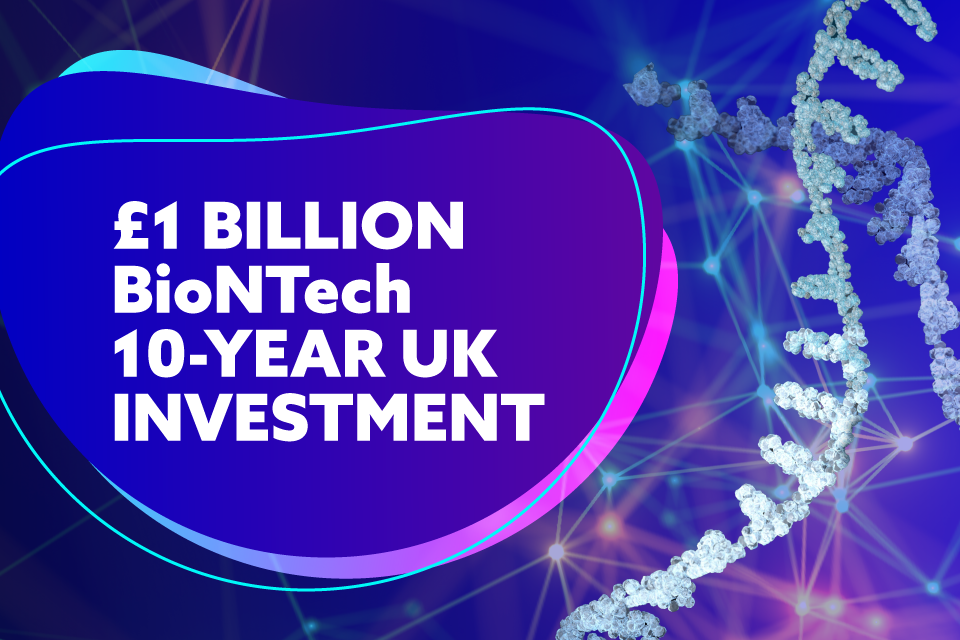UK Government Announcements: Pandemic Agreement and BioNTech Investment

BioNTech, a pioneer in Covid-19 vaccines, has committed up to £1 billion over the next 10 years to invest in the UK. With government support of up to £129 million, BioNTech plans to establish new research and AI centers in London and Cambridge. This investment is expected to create hundreds of highly skilled jobs and drive significant advances in medical science, reinforcing the UK's position as a leader in life sciences. The investment will focus on genomics, oncology, structural biology, and regenerative medicine.
The new R&D hubs aim to advance research and development efforts, translating scientific discoveries into tangible benefits for patients. In Cambridge, the focus will be on cutting-edge research areas. In London, the AI hub, led by InstaDeep Ltd, will leverage artificial intelligence and machine learning to understand disease causes, drug target selection, and predictive analytics. This initiative is part of the government’s Plan for Change, designed to support growth-driving sectors and boost economic growth across the country.
Chancellor Rachel Reeves emphasized that this investment demonstrates confidence in Britain as a top investment destination and a global hub for life sciences. BioNTech's CEO, Uğur Şahin, highlighted the strategic partnership with the UK government, aiming to expand access to personalized cancer therapies and accelerate research and development efforts. The investment also builds upon the existing partnership to provide personalized cancer immunotherapies to up to 10,000 patients by 2030.
Simultaneously, the UK has adopted a new World Health Organization (WHO) Pandemic Agreement to protect the British public and NHS from future global health threats. This agreement aims to improve the world’s collective ability to prevent, prepare for, detect, and respond to global disease threats while preserving UK sovereignty. The agreement respects national sovereignty and encourages effective collaboration to address shared global health threats, strengthening national security.
The Pandemic Agreement includes commitments to pandemic prevention, fostering innovation, enhancing global research and development, and strengthening supply chains. It also paves the way for a voluntary Pathogen Access and Benefit Sharing (PABS) system, facilitating faster access to pathogens and genetic sequences for pharmaceutical companies to create new vaccines, treatments, and tests. The PABS system is voluntary, with manufacturers sharing a portion of their production with the WHO for allocation where it is most needed.
Minister Baroness Chapman stated that the Pandemic Agreement exemplifies the UK's collaboration with partners to combat disease and strengthen health systems. Health Minister Ashley Dalton emphasized that the agreement will help protect British people from future pandemic threats and safeguard the health system, supporting the mission to build an NHS fit for the future. UKHSA Chief Executive Dame Jenny Harries highlighted the importance of international cooperation in pandemic preparedness and the agreement's role in making the world safer from pandemic threats.
The agreement does not grant the WHO powers to impose domestic public health decisions on the UK, ensuring the sovereignty of states is maintained. It aims to avoid a repeat of the devastation caused by Covid-19 by creating a framework for countries to take action together, improving disease surveillance, and speeding up innovation of life-saving vaccines and treatments.










